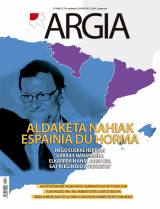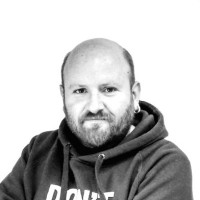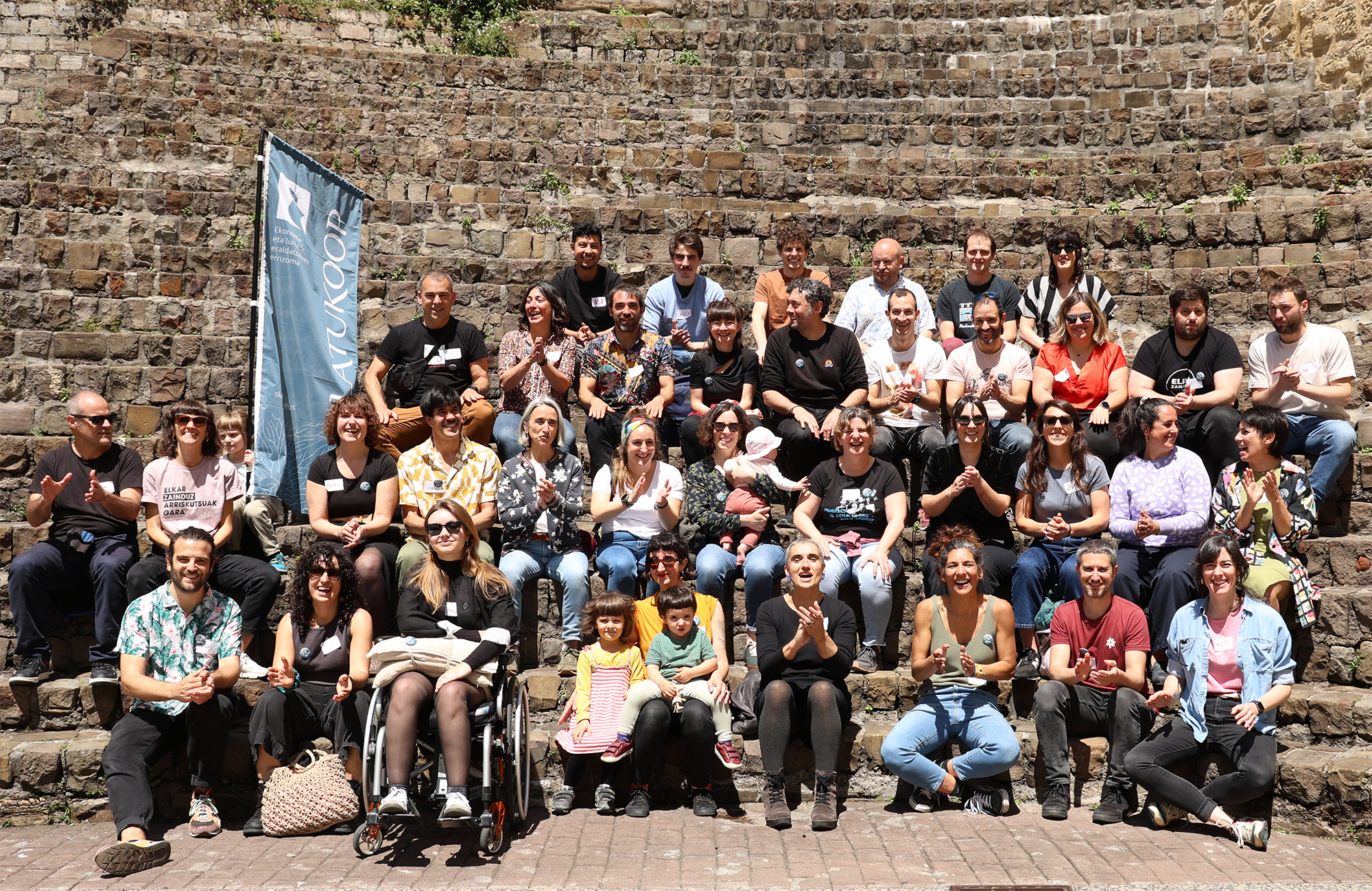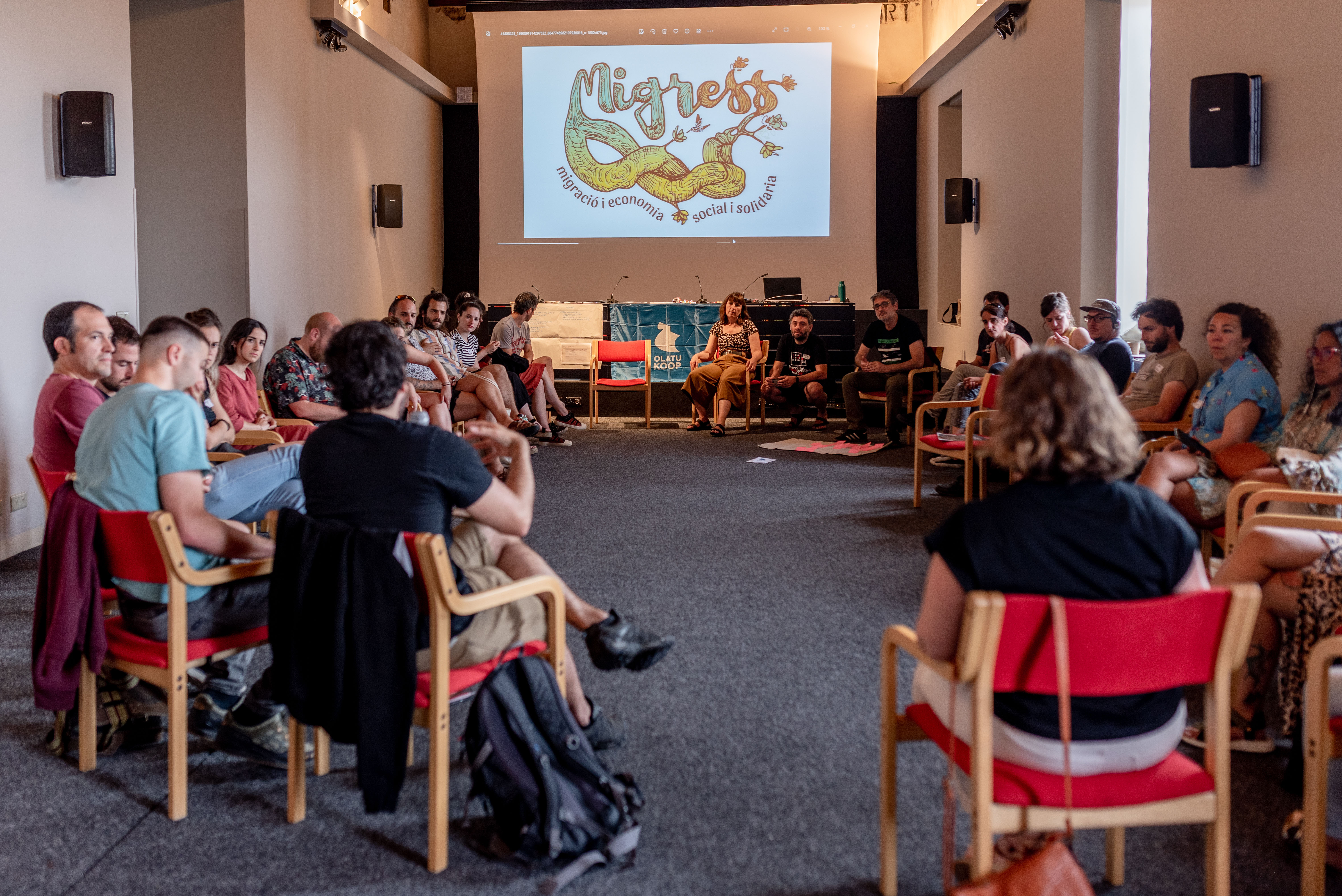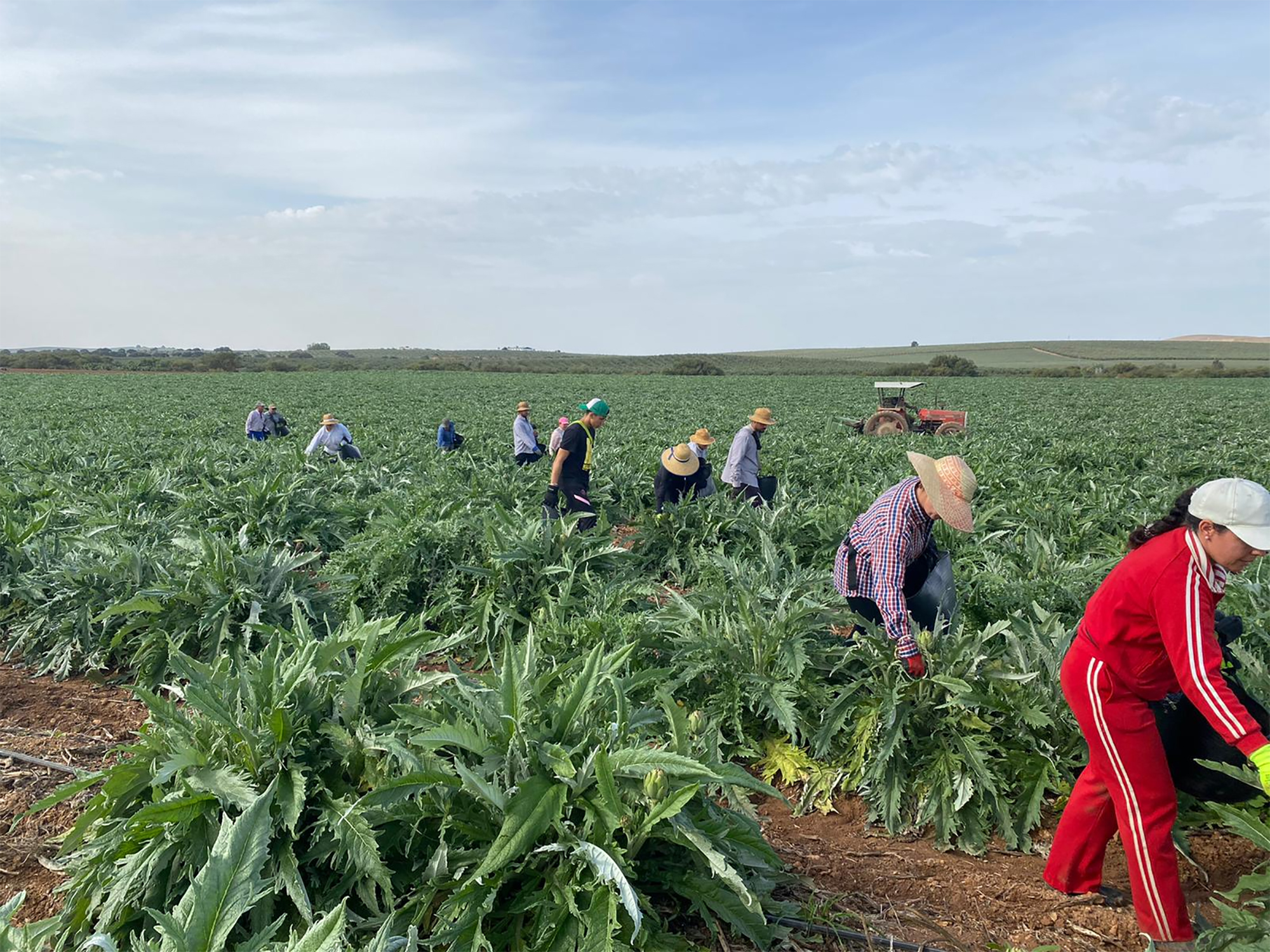Create, maintain, modify
- The debate on social transformation in Ipar Euskal Herria and in the French State in general is very hot. What does the liver of words mean? Not everything is transformative, not everything is social. Xabier Itzaina has reviewed the evolution of cooperatives at the Lanki Institute's Cooperative Meetings. In his view, the social economy is in a new phase that is being consolidated.
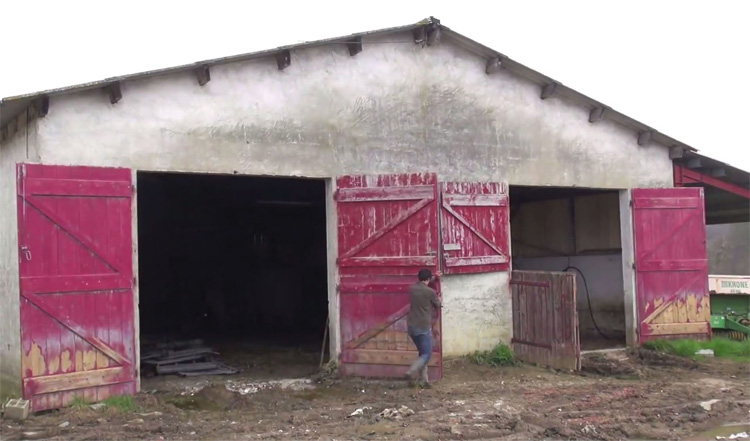
“All social innovations do not lead to social transformation, but depend on what is established in the liver of words.” This is summarized by the researcher at the University of Bordeaux Xabier Itzaina, one of the main debates of the present day on the transformative economy. The Lanki Institute of Mondragon Unibertsitatea has organized the IV. Itzaina spoke at the Cooperative Meetings.
The meetings aimed to analyze the relationship between cooperativism and social transformation, and brought together the agents who work in both worlds. Xabier Itzaina took advantage of her experience in the field of anthropology to explain that there are non-strictly economic reasons that can lead to transformative economic development: “We have called it the territorial regime.” In his words, the confidence that exists among the agents of a territory, economic and political regulation and the degree of participation in the definition of public problems are key to making “local development” the axis of the social economy. With this premise, the researcher makes a reading of the trajectory of the social economy in Iparralde, differentiating three phases: create, maintain and modify.
Sortu: Basque cooperative movement
In the 1970s, Iparralde began the “modern cycle” of the social economy, according to Itzaina. Of course, before that it was: Networks emerged in the struggle between white and red at the beginning of the 20th century - monarchist clericals and republican anticlericals -, auzolan of peasants or fishermen's cooperatives.
In any case, 40 years ago a new cooperative movement began with a clear objective of social transformation; the creation of these companies was not a “rational” decision from the economic point of view: “I always set the same example, but that’s right, the creator of a furniture cooperative said to me: ‘At first, when we created it in 1982, we were about 40 workers and nobody knew how to make a career among us, but the first motivation was to create jobs in the village’. It was precisely the time when the work was the motto of the people.
The workers' cooperatives of Ipar Euskal Herria were considered social movements, but in the South they always looked at the steps of Mondragon to develop cooperativism in an integrated way. This is how the Lana association was born in 1982, which in its regulations was defined as “Basque cooperative movement”. On the other hand, in 1979 the Hemen society was created and in 1980 the Herrikoa society, to promote popular savings.
According to Itzaina, Basque identity has a great space in this movement: “Not an idealized Euskaldunization but one rooted in reality.” As a result, the cooperative projects will start receiving aid from Hego Euskal Herria, and when the French Government opposes them, major mobilisations will be made in defence of this funding. Therefore, local development began to be considered as a socio-political problem. An idea of the South gains strength, the industrialization of the interior. “To simplify,” says Itzaina, the abertzales of Iparralde saw their territory as underdeveloped.”
Perseverance: first official knowledge of the territory
Cooperatives will last in the 1980s, while others disappear. As a small network, the movement will be hampered by the failure of some major companies, such as the closure of the Denek furniture factory in Rosa in 1985. Behind it are economic factors and political tension. It will be remembered that in 1984 Denok, Alki and other factories were set on fire in the GAL attacks on refugees.
Nor will the French State’s vision of cooperatives contribute. In the 1970s, they were seen as anti-unemployment instruments, and in the 1980s other associations would be assigned this role. However, in the field of local development, the State has several impulses for reflection that will give rise to a number of organizations that for the first time will give official recognition to the territory. Itzaina has been established in the Development Council: “It is interesting to see that the first presidents and directors of this organization representing civil society come from the world of cooperatives. Therefore, the people of the cooperatives are always at the heart of the problem of local development”.
One of them is Ramuntxo Kanblong, founder of Copelec, the first cooperative of the Northern Basque Country in 1975, who in 1994 was president of the Development Council and who at that time explained to ARGIA: “The companies came from outside and Iparralde lived thanks to the development of France. And that's been the important thing, that people here have started creating things, because we needed endogenous development."
Changing: new social movements
According to Xabier Itzaina, the social economy has been in another phase in Iparralde for 10 years, and this trend is consolidating. To demonstrate this, he highlighted the contribution of the new social movements.
In the last decade, initiatives have continued to emerge in the area of solidarity financing, so that women and young people set up businesses, in the agricultural sector… In 2005 the creation of the Chamber of Agriculture of the Basque Country was a creation and more recently the implementation of the Basque currency. Itzaina believes it could be a continuation of the 70's movement, but with some differences: “There is now more talk about the environment, the energy transition, gender equality… and less about the industrialization of the interior.” Itzaina has ensured that the abandonment of industry has generated concern among the historical cooperatives, who have been unable to do anything.
The consumption model and the diversity of the movement, which includes not only ecologists, peasants or feminists, but also part of the French trade unionism, has also changed cooperatives. In 2002 the legislation provided the possibility of creating a “Cooperative Society of General Interest” inspired by Italian social cooperatives, and multiple consortia can now participate. Itzaina has set the example of popular television Kanaldude, as this is the way that the video cooperative Aldudarrak has adopted, thanks to which the Iparralde Garazi Baigorri community has been incorporated.
The researcher has also announced that substantial changes in political governance will also affect local development and the social economy: “To begin with, we can already say that it has opened a public debate on the decisions taken to form a single community and all aspects of the evolution of the territory will be worked out in the coming months and years.” From there, new models of development could emerge, according to Itzaina, and who knows, perhaps the South is placed when it comes to looking north.
Gure lurraldeetan eta bizitzetan sortzen diren behar, desio eta ekimenen inguruan gero eta gehiago entzuten dugu harreman eta proiektu publiko-komunitarioak landu beharraz, eta pozgarria da benetan, merkaturik gabeko gizarte antolaketarako ezinbesteko eredua baita. Baina... [+]
I write these lines the day after the elections to the European Parliament, the dark times, the triumph of the Reactionary International in the elections to the European Parliament. It was already in advance and it is the confirmation of the conservative phase we live in, but it... [+]
One of the major projects developed by Olatukoop with other actors is KoopFabrika, a programme created in 2017 with the aim of boosting social entrepreneurship and which is currently underway.
Initially, the first idea was that the cooperatives and agents that gathered around... [+]
Bizitegi molde kooperatiboak zabalduz doaz Ipar Euskal Herrian. Euskal Hirigune Elkargoko azken biltzar nagusian Nicole Etxamendi, Itsasuko hautetsiak "Bizi lagun" kooperatibak kontutan hartu behar zirela eta alternatiba ona direla azpimarratu zuen.
When I am asked about cooperativism and the transformative economy through the cooperative Talaios and Olatukoop, I say that it has been an opportunity to begin the path to emancipation through work and collective action. And on that road it has been very important to work on... [+]
At the beginning of July we learned that the pastries and sweets factory De Paula will be closed in our town, which is essential for many workers’ houses. They say that pastry shops and, of course, retired workers have every right to rest, but we are going to lose an important... [+]
We insist that we are no longer a partnership or a collective. We went, yeah. We didn't have a collective way of being activist transmaribibollos (no, we're not very supportive of individual activism). We leverage the partnership to bill.
But in 2020, we went from being... [+]









